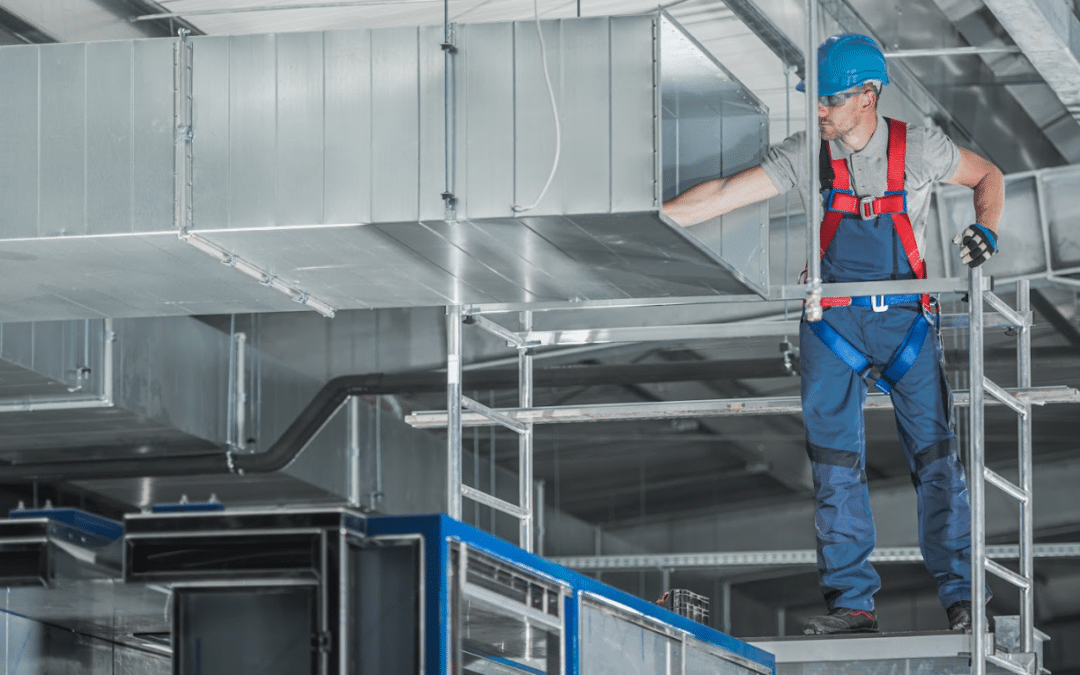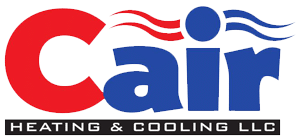Both residential and commercial HVAC systems serve the same purpose at the end of the day. They both provide heating, cooling, and ventilation for your home or business. Deciding if you need a residential or commercial HVAC system does not need to be a challenge. When choosing which system is best for your needs, understanding the difference between the two will make your choice easier.
Residential HVAC Systems
Residential systems are smaller because they are generally used to heat and cool smaller spaces. Residential HVAC units are typically used in single-family homes, apartment units, and townhouses. Although they are used in smaller capacities, there are a number of residential HVAC units that are on the market. Each one has different benefits. When choosing an HVAC system for your residential needs, the choice will be dependent on what you value most.
Split Systems
A split system is a type of air conditioning system that has both indoor and outdoor components. The two units are connected together with copper tubing. Both air conditioners and furnaces can be parts of a split system. This type of system can be expensive to install and could be considered bulky since they require both indoor and outdoor space. However, split systems are highly efficient. In fact, they often score higher than central air conditioning and heating systems on the Seasonal Energy Efficiency Ratio (SEER) ratings. High-efficiency systems such as split systems can help homeowners save hundreds of dollars on their energy bills every year.
Packaged Heating and Air Systems
Packaged air and heating systems are a 2-in-1 deal. They are meant to make it easy for homeowners to have both their heating and air conditioning systems in one. Since packaged heating and air systems are only one unit, they are generally easy and cheap to install. These systems are also very efficient. All of these benefits make packaged heating and air systems a popular choice for homeowners.
Geothermal Systems
Geothermal systems are rising in popularity for their energy efficiency. This type of system takes the heat from the ground and releases it into your home. Since the heat pump does not burn fuel to create heat for the home, geothermal systems are on the pricier side of HVAC units. However, the energy efficiency that these units have can lead to a large reduction in your utility bills.
Commercial HVAC Systems
Commercial HVAC systems have the same purpose as residential HVAC systems. However, they are geared toward commercial businesses that usually have more space and higher occupancy. Unlike a residential HVAC system, which can heat or cool small spaces, commercial HVAC systems cover a large amount of space. For this reason, commercial HVAC systems are much larger, and they might come in multiples. The following are some of the types of commercial HVAC systems available.
VAV System
Variable air volume (VAV) systems are a type of HVAC system that supplies air throughout commercial buildings. VAV systems distribute air at a constant temperature but at varying potency depending on the needs of the area it is going to. Some benefits of VAV systems include the following:
- Excellent temperature control
- Quiet
- Energy efficient
- Longevity of the parts
- Reduced fan speed
All of the above benefits make VAV systems an excellent choice for commercial building owners. In addition, the fact that the fan speed is reduced results in less overall wear.
Water-Source Heat Pumps
A water-source heat pump uses water instead of air in the cycle to produce the energy to heat commercial buildings. Water-source heat pumps are a type of packaged system. Large commercial buildings generally have multiple water source heat pumps that are placed above the ceiling or in a closet so they can be easily accessed. Because each unit is independent of the others, this makes it virtually impossible for there to be a complete system failure. Some additional advantages of this system include:
- Easy to maintain
- Individually zoned
- Low installation costs
- Reliable
- Energy efficient
Split Systems
A split system in a commercial building is usually connected to the air ducts, similar to a residential unit. Split systems are generally used in smaller commercial buildings such as office buildings and small shops. Because the split system is often used in multiple locations, one system might be needed for each space. An example of this would be a shopping center with different stores. Each store would likely want control of its own heating and cooling. If the system is being placed on the roof, it can quickly become cluttered.
Rooftop (RTU) Systems
A rooftop unit is a type of packaged unit that is placed on the roof of a building, as the name suggests. All parts of the HVAC unit are contained in one large container. Each rooftop unit is zoned, meaning each one is responsible for its own area of a building. Rooftop units are affordable and easy to install. However, because of the cooling and heating capabilities of this system, it can be bulky and take up a lot of space. They can also require a lot of maintenance.
Each residential and commercial HVAC system have its own advantages and disadvantage. Although both systems are meant to heat and cool your space, the goal is always to choose the system that will benefit you for the longest time. Air conditioning and heating are major factors when it comes to the comfort of your home or commercial business. The residential or commercial HVAC system that you choose for your home or business will depend on your personal needs. Contact a professional to get help with your decision.
Top-Rated Residential and Commercial HVAC Systems in Louisville, KY
For top-rated, fair-priced, and professional AC installation in Louisville, KY, look no further than Cair Heating & Cooling. With over two decades of experience providing unparalleled HVAC solutions to homes and businesses in the Louisville area, our team can help you determine the best residential and commercial HVAC systems that meet your needs. To request an estimate or to schedule an appointment today, please contact us at (502) 708-2247.


